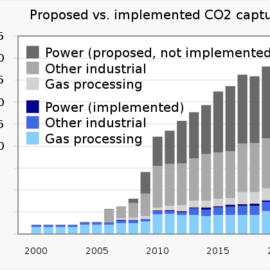
The company is behind a $2.8 billion renewable diesel plant in Caldwell Parish and has been invited by the Department of Energy to apply for a $1.6 billion loan to help finance the project.
PHOTO PROVIDED BY STRATEGIC BIOFUELS
Strategic Biofuels has been asked to apply for a loan.
Strategic Biofuels, the company behind a $2.8 billion renewable diesel plant in Caldwell Parish, has been invited by the Department of Energy to apply for a $1.6 billion loan to help finance the project. The Department of Energy has already completed an initial review of the Louisiana Green Fuels plant, located in Columbia, about 25 miles south of Monroe, for its potential for a Title XVII Innovative Clean Energy Loan Guarantee. Strategic Biofuels will now work with the department to submit a formal application for a more scrutinized review before the agency will decide whether to loan the company the money. The loan’s amount won’t be determined until federal reviews and negotiations are completed. Strategic Biofuels CEO Paul Schubert said the total could rise or fall depending on how continued design work for the plant shakes out. The application isn’t a guarantee the plant will receive the money. Schubert said the application timeline is fluid because the Department of Energy will request information and materials on a step-by-step basis instead of all at once. However, Schubert said federal officials have told them the application process could take anywhere from eight months to a year. If that process is successful, the company would then enter into formal financial negotiations with the Department of Energy. “It’s a process that you go through with them,” Schubert said. “We’re starting with them here in the next couple of weeks.”
nola.com
The expectation is that the facility will make fuel from forestry waste.
Louisiana Green Fuels is expected to produce 33 million gallons of renewable fuels annually, most of which will be renewable diesel sourced from local forestry waste. Strategic Biofuels hopes to make a final investment decision on the project by mid-2024, once all the financing has been locked up, Schubert said. Construction would be about 31 months, followed by a six-month ramp-up to initial production, he said, putting the plant’s operational status at sometime in 2027. About $2 billion of the project’s cost will come from debt, including the Department of Energy loan and tax-exempt bond allocations from the state, Schubert said. The rest of the project, about $800 million, will be funded through equity financing. In December, the company held a groundbreaking ceremony with state officials for infrastructure upgrades at the Port of Columbia, where Louisiana Green Fuels will be built. That work will be financed by a $15 million grant from the Department of Transportation and Development’s Port Priority Program, as well as a $509,000 grant from the Delta Regional Authority. “We believe the loan guarantee program is a shining example of the US government’s commitment to decarbonizing the transportation sector,” Schubert said in a statement announcing the loan application invitation.
In a sense this project is from the IRA as that bill made more money available.
Though the Title XVII Innovative Clean Energy Loan Guarantee Program has been around since 2005, the Inflation Reduction Act in 2022 unleashed another $40 billion for the program. Eligible projects for Title XVII loans must deploy “new or significantly improved technology” that either reduce or sequester greenhouse gas emissions, according to the Department of Energy. Strategic Biofuels, an Olathe, Kansas-based firm, has touted its production process for Louisiana Green Fuels as “carbon negative” because of its lower-carbon intensity compared to traditional diesel. The plant will convert forestry waste — such as thinnings from branches, pine needles and treetops — into renewable diesel and renewable naphtha, a common solvent and ingredient for blended fuels. Strategic Biofuels has said abundant forestry feedstocks are available near the plant site. Company officials have also said the diesel created at Louisiana Green Fuels would release fewer contaminants into the air when burned.
This is another Carbon Capture plant.
The project will also rely on carbon capture to reduce its emissions. Strategic Biofuels has said it completed a successful carbon capture injection well test at the Caldwell Parish site in August 2021. Industry advocates have championed carbon capture as a necessary tool to reduce carbon dioxide emissions. However, environmental groups have been critical of the technology’s effectiveness, saying historical capture rates are nowhere near what has been promised. Fears over the technology have also led to pushback in Livingston and Iberville parishes.
Is this a refinery that is not a refinery?



